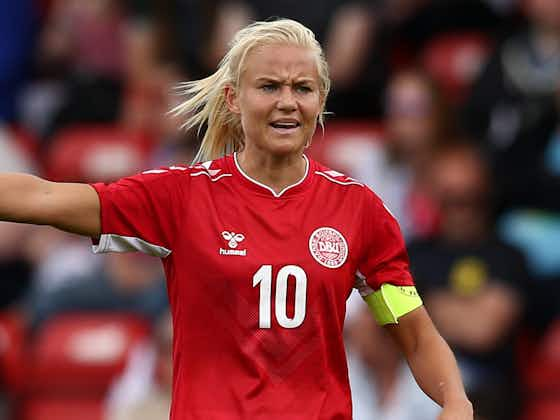90min
·3 May 2022
Denmark qualify for first Women's World Cup since 2007 after Russia expulsion

In partnership with
Yahoo sports90min
·3 May 2022

Denmark have qualified for the Women’s World Cup for the first time since 2007, with their place in Australia and New Zealand in 2023 confirmed by Russia’s expulsion from qualifying.
As part of ongoing sanctions against Russia due to the invasion of Ukraine, UEFA confirmed on Monday night that the country has been kicked out of Women’s Euro 2022 this summer, as well as banned from the 2022/23 men’s Nations League, and all other UEFA competitions at club and international level until at least the end of next season.
That also includes being removed from their 2023 Women’s World Cup qualifying group.
Russia’s results have been annulled and all of their remaining qualifiers cancelled, which suddenly means no other country in the group can now catch leaders Denmark with just two more games to play – only one team per group gains automatic qualification to the World Cup.
It marks the end of what by 2023 will have been a bizarre 16-year absence for the Danes on the biggest international stage, despite long being known as one of the premier countries in women’s football globally and regularly producing numerous world class players.
In stark contrast, they haven’t missed the European Championships since 1995, were runners-up in 2017 and semi-finalists the time before that in 2013, all during their World Cup wilderness.
Pernille Harder, easily one of the world’s best over the last five years and the most expensive player in women’s football history, has never played at a World Cup, nor has seasoned former Portland Thorns, Manchester City and Paris Saint-Germain star Nadia Nadim. That will finally change.
Denmark are the ninth country to secure their place at the finals through the qualification process, in addition to co-hosts Australia and New Zealand – 21 places remain undecided for now, with 2023 the first Women’s World Cup to be expanded to 32 teams.
All Asian (AFC) qualifiers have already been decided. There are four qualifying places for Africa (CAF), four for North & Central America (CONCACAF), three for South America (CONMEBOL) and seven remaining for Europe (UEFA), plus a further three from inter-confederation play-offs.


Live





























































